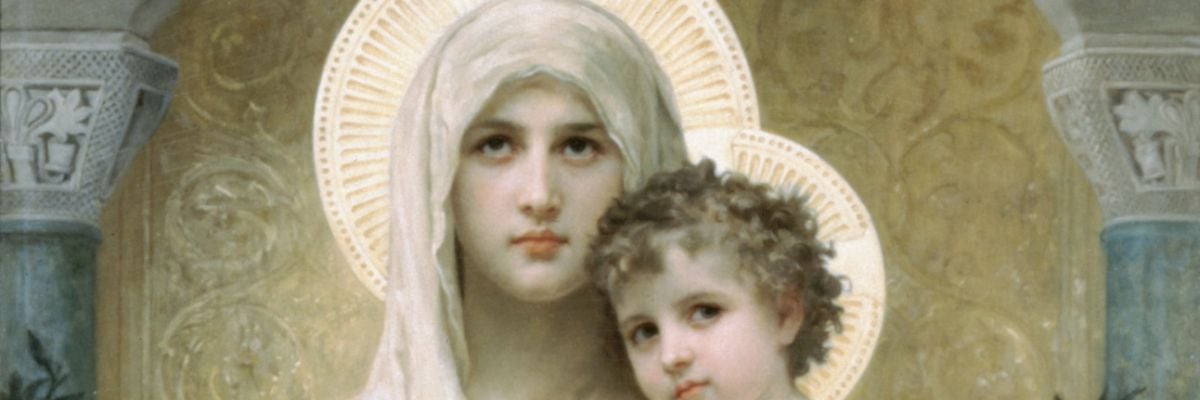
Question:
Answer:
The question you ask goes directly to the necessity of understanding who Jesus is. Scripture affirms that Jesus is both “the Son of Man” (Mt 12:8) and “the Son of God” (Mt 8:29).
As we encounter God in history, through his relation with and revelation to man, we see that God acts in three distinct Persons, though he is one unique and singular whole. This is the mystery of the Trinity. As the Son of God, Jesus takes part fully in this divine and hidden life of God. But we also know that God is not given to change or alteration; he is perfect in his nature. God is as he is throughout and apart from time. He is eternally the Father, eternally the Son, and eternally the Spirit.
But we also see something else in God. He is not just one God in three divine Persons. These Persons also exist in relation to one another. In attempting to express this relationship of Father to Son within God we say that the Son is “begotten” of the Father. This is the way that Scripture refers to this divine relationship (see Jn 1:14, 18; 3:16, 18 as examples). When did this take place? Before creation, since, as John notes, the world was made through the Word [the Son]. Such an “action” on the part of God takes place outside of his Creation, outside of time itself. It is not an “event” closed by time, but a way of being within God himself. That is why we say that the Son is “eternally begotten” of the Father.
We have to be careful to understand this term. It is often used as synonymous with “to be born” but it really means “to cause to be.” Even though the Son is eternally existent, the Father “causes him to be.” God is the cause of his own existence. So “begotten” here is not the same as “being born.” That is why the Church, in the Nicene Creed, continues this way: “[The Son is] begotten, not made, one in being with the Father.”
Let’s turn our attention to that other great mystery of our faith, the Incarnation. We already have noted that Jesus was both the “Son of God” and the “Son of Man.” John puts it very simply: “The Word was made flesh and dwelt among us, and we saw his glory, the glory that is his as the only begotten Son of the Father” (Jn 1:14). To fulfill God’s purpose of salvation for all mankind, the Son freely chose to become human. In doing this he was subject to the same biological limitations that we are subject to. He had to be born, and he had to die. He was born at a specific time, to a specific set of parents, in a certain place. His being born this way was a historical event, able to be examined in the record of time.
These dual events are precipitated by who Jesus is: true God and true Man. The events are of a different order. The first took place hidden in God’s own being, apart from time, eternally. It was the act of God alone. The other took place in plain view, as a sign to all of us, at a specific time and place, within God’s creation. And while it was surely the work of God, the act of giving birth to the Son was the act of a woman, a human being.
So the Son is not “begotten twice.” He is begotten (“caused to be”) after the manner of his Father. And he is born, brought forth as a unique human being, after the manner of his mother. They are two different, but complimentary, acts.


